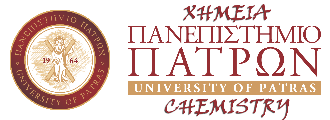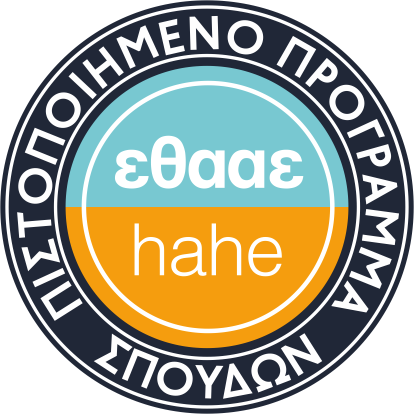Αγαπητοί φοιτητές,
Την Πέμπτη 19 Μαῒου, ώρα 6:00 μμ, θα πραγματοποιηθεί τηλεδιάλεξη με θέμα:
“Chemo- and Biosensors for the Internet of Things”
Προσκεκλημένη ομιλήτρια: Prof. Antje J. Baeumner, Director of the Institute of Analytical Chemistry, Chemo- and Biosensors at the University of Regensburg, Germany.
Η τηλεδιάλεξη πραγματοποιείται στο πλαίσιο του μεταπτυχιακού προγράμματος ‘Αναλυτική Χημεία & Νανοτεχνολογία’, καλύπτει διεπιστημονική ερευνητική δραστηριότητα και απευθύνεται σε ευρύ ακροατήριο.
Σύνδεσμος:
https://upatras-gr.zoom.us/j/96020984114?pwd=ZTJuaFRtdTRGOW9aaC9FbmJralZTUT09
Meeting ID: 960 2098 4114
Passcode: 254846
Biography
Antje J. Baeumner is the Director of the Institute of Analytical Chemistry, Chemo- and Biosensors at the University of Regensburg and remains Adjunct Professor in her former home institution, the Dept. of Biological and Environmental Engineering at Cornell University in Ithaca, NY, USA. She is Editor of the Springer Nature Journal Analytical and Bioanalytical Chemistry (ABC) and President of the International Association of Environmental Analytical Chemistry (IAEAC). She is chair of the 2022 Gordon Research Conference on Nanotechnology for Agriculture and Food Systems. Her research is focused on the development of biosensors and microTotal Analysis Systems for the on-site detection of pathogens and toxins in food, the environment and for clinical diagnostics with special emphasis on the development of novel nanomaterials.
https://www.uni-regensburg.de/chemistry-pharmacy/analytical-chemistry/homepage/index.html
Abstract
In the Internet of Things (IoT) linked machines and sensors use decision-making routines to work toward a common product or solution. Actually, by now, the IoT is not that strange to us anymore and has been accepted into various facets of our lives, where we may even set up our own small IoT with smart controls for lights, faucets and temperature controls in our homes and gardens. When this technical revolution is expanded into the value chain of complex areas such as agriculture, food production, and healthcare the need for linked machines is the same, yet the need for more sophisticated sensors rises sharply. Chemo- and biosensors address this need and, again, are nothing strange to us anymore. Today, wearable sensors, monitors and point-of-care diagnostic tests (such as a Covid antigen test) improve patients’ medical progression or athletes’ monitoring capabilities already. With smart phones, cloud servers and wireless internet ubiquitously available, a convergence of machines, sensors and the internet can propel the IoT for the greater good faster than we may think. In this talk, chemo and biosensors as key component of the future IoT are going to be discussed. We’ll look at what is already available, what is in the research pipeline and what may come in the not-too-distant future.
Με εκτίμηση
Θεόδωρος Χριστόπουλος
Καθηγητής, Τμήμα Χημείας
Πανεπιστήμιο Πατρών
& σμΔΕΠ ITE/ΙΕΧΜΗ
- Εμφανίσεις: 1514




